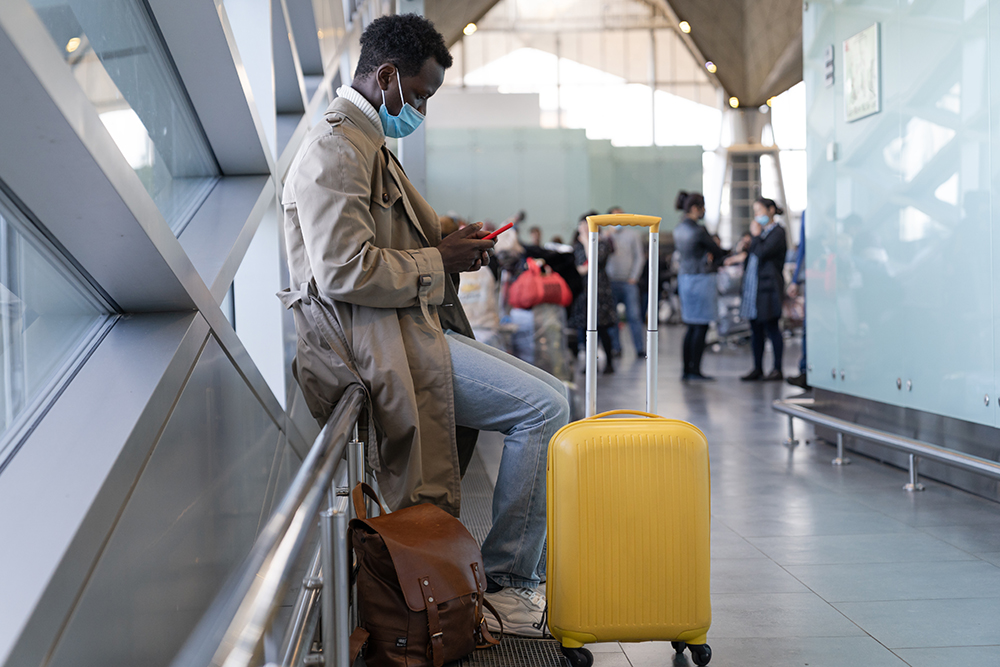

Features
Employee Vacation
Health & Safety
Can your employer ban you from work after travelling?
By Kristina Vassilieva/Peninsula Canada
 (DimaBerlin/Adobe Stock)
(DimaBerlin/Adobe Stock) Canada’s airports have seen a busier summer, and people are likely to continue travelling as flights restrictions are lifted further.
In the coming months, many will be travelling for the first time since the start of the pandemic. However, the prospect that workers will be boarding planes and then going through a busy airport on their way home may be concerning to some employers.
In Canada, fully vaccinated travellers are now exempt from quarantine upon their return and the Day-8 testing requirement. This means that fully vaccinated travellers can return to work immediately after their arrival to Canada, said Andrew Caldwell, HR advisory team lead at Peninsula Canada.
Many employers will have staff planning on travelling and using the remainder of their vacation entitlements before the year’s end. So, what can employers do to protect their workplaces?
Can employers forbid workers from going on a vacation?
Employers cannot tell workers what to do outside of work. But they do have some level of control when it comes to setting expectations of staff.
“Workers can choose to spend their vacation entitlements in any way they wish, including travelling outside of Canada,” said Caldwell.
“Employers can, however, require staff to give advance notice of their travel plans and require them to follow government guidelines on travel such as quarantine, if applicable, upon their return.”
Can employers ban staff who have recently travelled from the workplace?
Even though quarantine may no longer be a requirement for fully vaccinated individuals, employers still have to ensure the health and safety of their workplaces. Some might be thinking of updating their vacation policies in response to these changes.
However, having a policy that prohibits staff from returning to the workplace for any period of time after travelling when this is not required by law carries legal risk for the employer.
“Keeping an employee away from work, unpaid, when they are not required to would be hard to justify, and the employee could proceed with a constructive dismissal claim against their employer,” Caldwell explained.
“One possible solution would be to request that the employee temporarily work from home upon their return. Another way to ensure the safety of the workplace would be to request proof of vaccination from the employee who has travelled or a negative COVID-19 test upon their return to work.”
Do employers have to accommodate staff that have to quarantine upon their return?
Partially vaccinated and unvaccinated individuals are not exempt from travel restrictions upon their return to Canada. This might turn into a problem if an employee does give notice of their travel plans in advance and does not book sufficient time off to account for the time they need to quarantine.
“Employers are not required to give paid time off to staff to account for travel restrictions such as quarantine. But they can give staff flexibility with this and allow them to work from home if possible, so they do not have to miss two weeks of work to quarantine,” said Caldwell.
If staff did not notify their employer that they will travelling internationally and will be required to quarantine upon their return, the employer may prohibit them from entering the workplace until their quarantine is complete and may discipline the employee for missing work.
Kristina Vassilieva is an HR Writer at consultancy Peninsula Canada.
Print this page